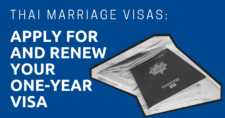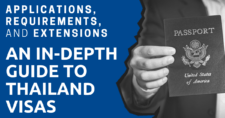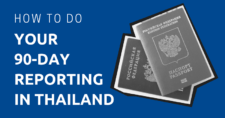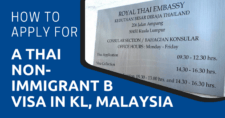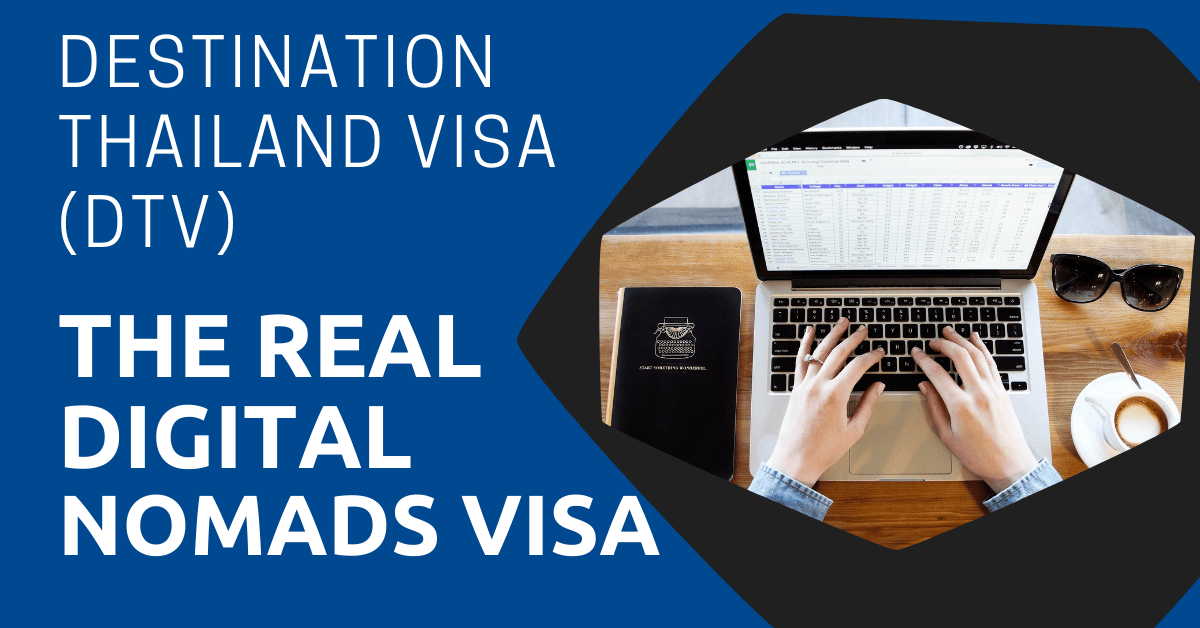
If you are a digital nomad or remote worker and want to live in Thailand legally, you should check out the Destination Thailand Visa. The visa was created to attract digital nomads and remote workers to Thailand.
It’s not just that; after the visa was released in 2024, it became one of the most popular visas in Thailand. Many people have obtained it, including retirees, since it provides a 5-year stay in Thailand. The requirements are also quite low.
Here’s everything you need to know about the Destination Thailand Visa (DTV).
Remark: If you like the content below, you can subscribe to our ExpatDen Premium. It costs only US$3.33 per month and helps us continue providing step-by-step guides for expats. In return, you get access to hundreds of articles to help you thrive in Thailand.
"*" indicates required fields
Disclaimer: This article may include links to products or services offered by ExpatDen's partners, which give us commissions when you click on them. Although this may influence how they appear in the text, we only recommend solutions that we would use in your situation. Read more in our Advertising Disclosure.
Contents
- What Is It?
- What Can You Do With DTV?
- Type
- Requirements
- Paperwork
- Visa Fee
- How to Apply for the Destination Thailand Visa
- FAQs
- How Do I Keep My DTV Visa Active?
- Do I Need to Do the 90-Day Report?
- Do I Need a Re-entry Permit?
- How Long Does It Take to Get Visa Approval?
- Can My Dependant Apply for the DTV Together With Me During My Initial Visa Application?
- Is It Easy to Get the DTV Visa?
- Do I Need to Use a Visa Agent?
- What If My Visa Application Form Doesn’t Have the DTV Visa Option?
- DTV Visa vs Other Digital Nomads Visa in Asia
- Can You Work in Thailand with DTV?
- Additional Benefits
- How to Apply for the DTV Visa
(And How It’s Costing Them)
Most expats throw money away, get lost in red tape, and miss the local hacks that make life easier and cheaper. ExpatDen Premium gives you the secrets seasoned expats use to save, earn, and thrive beyond the basics, saving you thousands and opening doors you didn’t even know existed.
Here’s what’s inside:
- Housing Hacks: Slash your rent by 40% or more - because the locals are laughing at what you’re paying.
- Banking Mastery: Stop wasting on fees and get top exchange rates. Why give your money away?
- Healthcare for Local Prices: Quality treatment without the expat price tag.
- Visa and Legal Shortcuts: No more bureaucratic nightmares. Get the visa and residency secrets that others pay their lawyer dearly for.
- Deep Discounts: Find the savings locals rely on for groceries, dining, and more.
If you’re serious about making Thailand work for you, join ExpatDen Premium and make Thailand work for you.
What Is It?
While it’s said that the DTV visa is for anyone who want to come to Thailand as a digital nomad or a remote worker, in my opinion, it’s just for everyone who can prove that they can do a remote work.
It’s also for those who come to Thailand for the following activities:
- Muay Thai
- Thai cuisine
- Education
- Sport activities
- Medical treatment
- Foreign talent
- Seminars
- Art and music events+
What Can You Do With DTV?
The Destination Thailand Visa is a multiple-entry visa that allows you to live in Thailand for 5 years.
Each entry to Thailand initially allows you to stay in Thailand for 180 days. Once the 180 days are up, there are two ways to extend your duration of stay:
- Leave the country and enter Thailand again for at least a day.
- Get an extension of stay in Thailand, giving you a 360-day continuous stay in Thailand.
Once you stay in Thailand for 360 days, you may need to exit Thailand for at least a day to reset your stay.
Repeat the process until the visa expires.
Type
There are three types of the Destination Thailand Visa, each with a different purpose of visit:
- Workcation: For digital nomads, freelancers, or remote workers who want to come to Thailand.
- Thai Soft Power: For those who want to learn Muay Thai, Thai cuisine, receive medical treatment, and so on.
- Dependent: For the legal spouse or child (less than 20 years old) of the main DTV visa holder.
Requirements
There are three main requirements:
- You need to be at least 20 years old
- You need to have financial proof of at least THB500,000 throughout your stay in Thailand.
- You need to have proof of the purpose of your visit:
- If you are a digital nomad, remote worker, or freelancer, you normally need to show
- An employment certificate
- A professional portfolio showcasing your work
- A letter explaining your remote work
- The latest invoices to your clients
- If you want to do Muay Thai training, learn Thai cooking, seminar, music festivals, or receive medical treatment, you need to get a letter of acceptance from a related organization.
- If you are a dependent of the main DTV visa holder, a proof of relationship such as a marriage certificate or a birth certificate is required.
- If you are a digital nomad, remote worker, or freelancer, you normally need to show
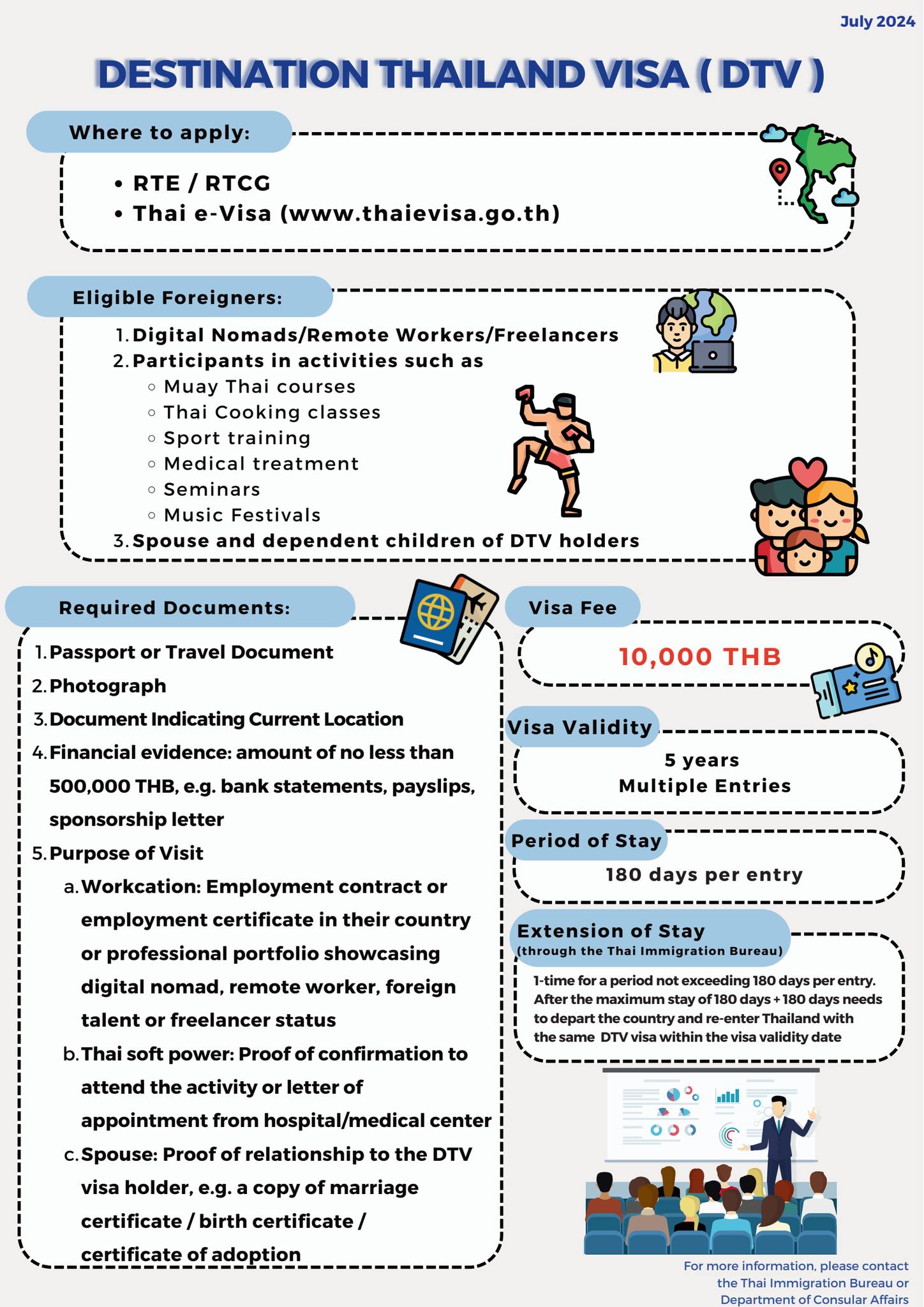
Paperwork
Here’s a list of paperwork you need to have:
- Passport: It must be valid for more than 6 months.
- Visa Application Form: You can pick it up at the embassy or consulate.
- THB500,000 Financial Proof: Depending on where you apply, you can use a statement from your Thai bank account or your home country account with the THB500,000 equivalent.
- If you use your Thai bank account, it should be a financial statement for up to 6 months from your bank. You should get it directly from your bank. Printing it from your online bank account may not be accepted.
- If you use your overseas bank account, it’s possible to use a financial statement from your home country bank as long as it has an equivalent amount.
- Proof of Purpose: You need to prepare one of the following documents, based on the type of the DTV visa:
- Employment Certificate (Workcation): An employment certificate from a company you are currently working for as a remote worker. The certificate should clearly that you can work remotely and may need to be notarized.
- Professional Portfolio (Workcation): While there’s no clear guideline from the official source, successful applicants uploaded their tax record from a previous year and a letter showcasing their experience as a digital nomad in detail. Contracts with your clients as well as recent invoices also work.
- Letter of Acceptance (Thai Soft Power): For example, a letter from a Muay Thai gym or cooking class, or an appointment letter from a hospital. Please note that not all embassies accept it at the moment.
- If it’s Muay Thai training, find a gym that can provide paperwork confirming that you will train with them for at least a month. (To be safe, it should be at least a year)
- If it’s for medical treatment, contact your hospital and request a treatment confirmation document. To be safe, the treatment plan should cover at least a month. (To be safe, it should be at least a year)
- Proof of relationship (Dependent): a marriage certificate, birth certificate, or an adoption certificate.
- Proof of Residency: You can use your driving license, lease, bank statement, utility bill, or any other document that can show proof of stay. In some cases, it can be just an ATM slip showing the location.
Please note that each Thai embassy or consulate may require different documents.
For example, it’s reported that sometimes you also need to prepare:
- A photograph taken within the last 6 months.
- Proof of onward travel such as a flight ticket.
It’s best to contact the Thai embassy or consulate or check their websites for a full list of documents you need.
Here’s a list of popular Thai embassies/consulates:
- Australia: Royal Thai Embassy, Canberra
- Laos: Royal Thai Embassy, Vientiane
- Malaysia: Royal Thai Consulate-General, Kota Bharu
- UK: Royal Thai Embassy, London
- USA:
If you want to apply online, check the eVisa website.
Visa Fee
There’s a visa fee of THB10,000 for the Destination Thailand Visa. However, the actual amount depends on the embassy. For example, the Royal Thai Embassy in Canberra, Australia, charges $600 AUD (~THB14,500).
How to Apply for the Destination Thailand Visa
You can apply for the Destination Thailand Visa from the Thailand consulate or embassy.
- Home Country: If you are in your home country, contact the Thai embassy or consulate to begin the process. In many cases, you can complete it through the E-Visa system.
- Outside Your Home Country: If you are outside your home country, you will need to apply at a Thai embassy or consulate that does not require proof of residency. According to online reports, the Royal Thai Embassies in Vietnam, Laos, Myanmar, and Cambodia are possible options.
The application process typically goes as follows:
- Submit all required documents online through the eVISA system.
- The embassy/consulate staff will usually respond within a few days, informing you if additional documents are needed.
- Submit the documents EXACTLY as requested.
- Wait a few more days for your visa to be approved.
- Print out the approved visa and present it to immigration upon your arrival in Thailand.
If you apply in a neighboring country of Thailand, in many cases, you will need to make an appointment online, attend on the scheduled date, submit all the required documents, and wait approximately 3-7 days for visa approval.
FAQs
This section covers frequently asked questions about the Destination Thailand Visa (DTV).
How Do I Keep My DTV Visa Active?
Simply avoid overstaying and either extend your visa or leave Thailand before your visa entry stamp expires. You should avoid legal issues as well.
Do I Need to Do the 90-Day Report?
Yes, the 90-day report is required. The process is the same as with other visas. Visit your local immigration office to complete the report.
Find out more: How to Do Your 90-Day Reporting in Thailand
Do I Need a Re-entry Permit?
No, the DTV Visa is a multiple-entry visa. You can leave and reenter Thailand as many times as you like without needing a re-entry permit.
How Long Does It Take to Get Visa Approval?
In general, it’s around 3-7 business days. Again, it totally depends on each Thai embassy and consulate.
Can My Dependant Apply for the DTV Together With Me During My Initial Visa Application?
Yes, your dependent can apply for the DTV Visa at the same time as you during your initial application process. They also may not need to be with you during the visa application.
Is It Easy to Get the DTV Visa?
Yes, it’s one of the easiest visas to obtain for Thailand. As long as you have the correct paperwork, the process should go smoothly.
Do I Need to Use a Visa Agent?
No, there is no need to use a visa agent. The process is straightforward, and you can handle it on your own.
What If My Visa Application Form Doesn’t Have the DTV Visa Option?
Since the DTV Visa is new, some visa application forms may not list it as an option. In this case, simply write down “DTV Visa” on the form.
DTV Visa vs Other Digital Nomads Visa in Asia
The Destination Travel Visa is very attractive since the income requirement is much lower than every country in Asia that has a digital nomad visa.
For example, in Malaysia, you need to have an annual income of US$24,000 while Japan requires a much higher amount at US$68,000 for a digital nomad visa.
In addition to that, it’s valid for 5 years, while for other countries, it’s normally only 1-2 years.
However, the only disadvantage is that the visa allows you to stay in the country for only 180 days at a time. You need to leave Thailand or obtain an extension of stay to extend your stay.
Can You Work in Thailand with DTV?
While the Royal Gazette doesn’t clearly state this point, you can work online for your overseas clients while living in Thailand.
However, you cannot work for a company in Thailand since this should be only for those who have a Thailand work permit.
Additional Benefits
Another great benefit of the Destination Thailand Visa is that you can bring your legal dependent, including:
- Your legal spouse
- Your children who are younger than 20 years old.
How to Apply for the DTV Visa
There are two ways to apply for the DTV visa:
- Applying on your own: Check the website of the Thai consulate or embassy in your country to start the process. In most cases, it’s done through the e-Visa website.
- Using a visa agent: If you need help from a visa agent, you can use BTIsolutions.



